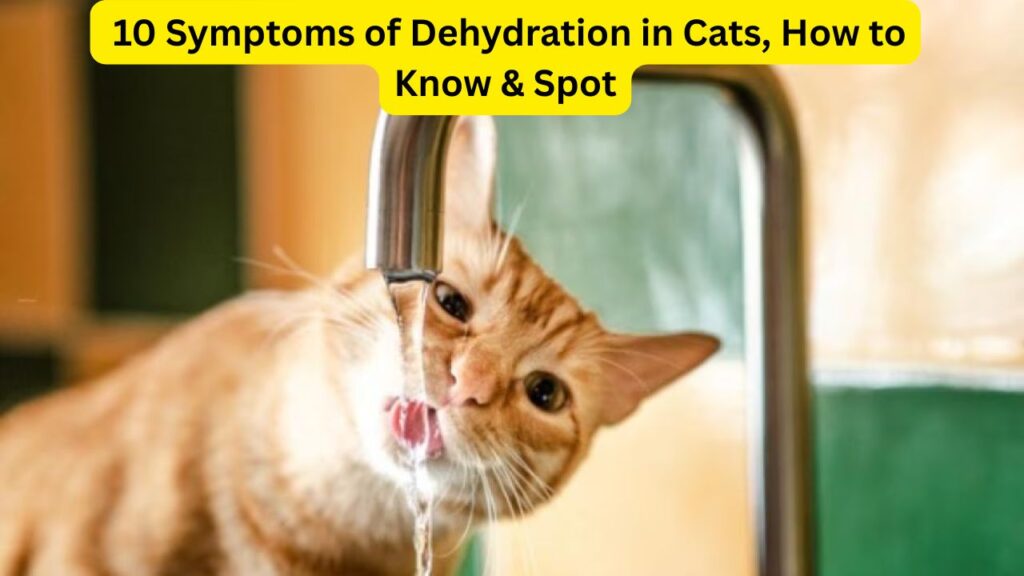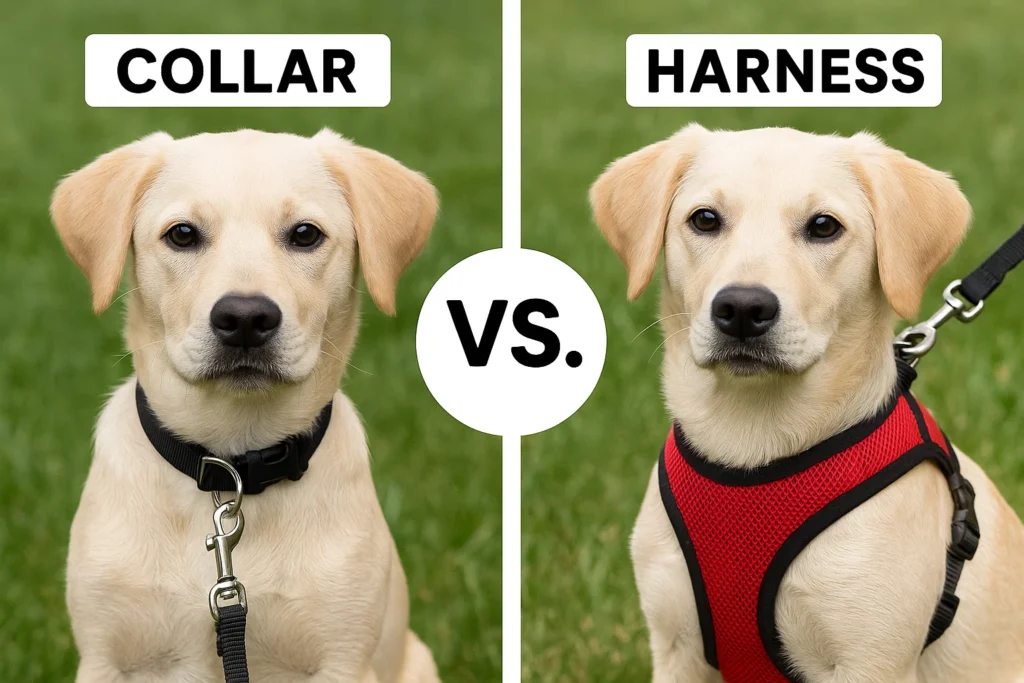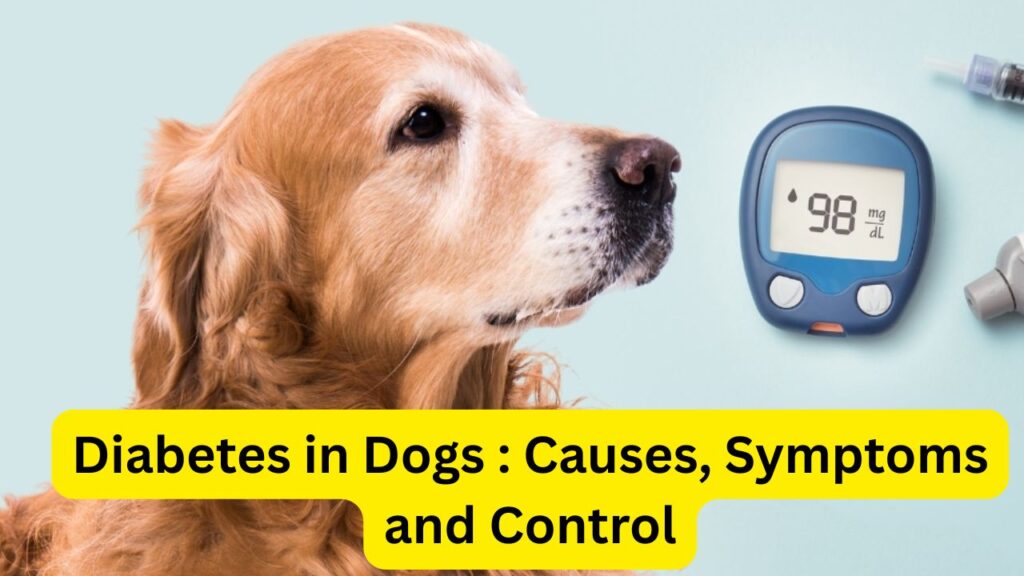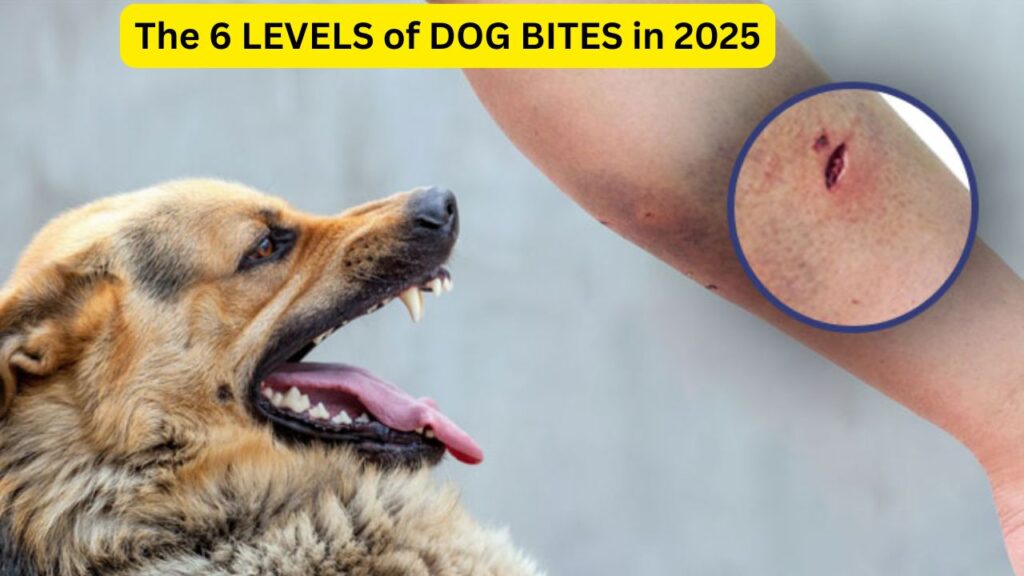Did you know that a cat can lose up to 10% of its body weight due to dehydration alone, this can be life-threatening, although cats are very resilient animals, a lack of water or illness can cause dehydration that goes unnoticed until it’s too late, that’s why we share the eight symptoms of dehydration in cats that you shouldn’t ignore

It’s one of the clearest signs of dehydration in cats, to check for it there’s a simple and effective trick, gently grasp the skin on your cat’s back just between the shoulder blades and pull upward slightly, in a healthy and well-hydrated cat the skin should spring back quickly, but if you notice it takes a few seconds to spring back or remains in place your cat may be dehydrated. This test may not be reliable in older or very thin cats, as their skin can sag for other reasons, so this must be considered carefully, and observed along with other symptoms, to avoid confusion in the results.
Top 10 Most Loyal Dog Breeds for Families in 2025
Dehydration in Cats Dry or sticky gums
When a cat is well hydrated their gums appear pink and moist, if you notice they are drier than normal sticky to the touch or even whitish this may indicate dehydration, you can check by gently lifting their upper lip and touching the gum with a clean finger, thick or sticky saliva is also a symptom you should not ignore, so it needs attention from you.
Increase capillary refill time
To check gently press a gum with your finger and see how long it takes for it to return to its pink color, under normal conditions it should recover immediately, in dehydrated cats capillary refill time is prolonged especially when the dehydration level reaches 10% or more, this delay is a clear sign the circulatory system is compromised, and should be checked by a vet.
Lethargy or weakness
Dehydration also affects an animal’s mood and energy, if your cat is more apathetic listless sleeps much more than usual or shows little interest in playing or moving they’re likely dehydrated, this symptom usually appears when the condition is already moderate or severe, so it’s very important to act quickly if you detect it, before it becomes critical.
Sunken eyes
Sunken eyes are a very obvious physical sign of advanced dehydration in cats, due to volume loss of the eyeball the cat’s eyes appear deeper in their sockets and less bright, this sign is often accompanied by other symptoms such as lethargy and dry mucous membranes, it may require urgent veterinary attention, without delay or waiting.
Loss of appetite
A dehydrated cat may stop eating or show less interest in food, this is not only a symptom but it exacerbates the underlying problem, by not eating they are also not ingesting water through food, if you notice your cat has reduced their food intake for more than 24 hours it’s important to consult your veterinarian, for proper advice and treatment.
Increased heart rate
A dehydrated cat’s heart beats faster, this is because the body tries to compensate for the low fluid intake by increasing its heart rate, although this symptom is more difficult to detect at home a veterinarian can easily observe it during a checkup, so expert evaluation is crucial, and must not be delayed.
Rapid breathing
Rapid or labored breathing can be another symptom especially if your cat has not been active and there’s no apparent reason for the exertion, like the heart the lungs work harder when the body needs oxygen in an alert state such as what occurs during dehydration, this must be monitored closely, and considered alongside other signs, to detect severity quickly.
Increased density of urine
When a cat is dehydrated they urinate less, their urine is also darker and more concentrated, a urine specific gravity above 1.035 can be a sign of dehydration, if your cat has kidney disease or polyura they may have normal or low density urine despite being dehydrated, this sign should always be assessed alongside other symptoms.
Bad breath
Bad breath with an ammonia odor can occur in dehydrated cats, this occurs when the kidneys don’t properly eliminate toxins causing them to accumulate in the blood as in cases of uremia, in addition dry mouth and dehydrated mucous membranes aggravate this problem, generating strong and unpleasant breath, that may worsen quickly.
Shock and critical condition
Finally signs of shock may also appear if dehydration exceeds 12% and the cat is already in critical condition, this can present with syncope or fainting weak pulse or hypotension, if you suspect any problem go to the vet, dehydration has many potential causes including vomiting diarrhea chronic illness or even heat exhaustion, in mild cases oral hydration will suffice.
If the condition is severe treatment will include intravenous fluids and monitoring, dehydration in cats is more common than it seems and detecting its symptoms early can mean the difference between a simple visit to the vet or an emergency, tell us in the comments if your cat has ever suffered from dehydration.
Overview Table
| Symptom | What it Looks Like | Severity |
|---|---|---|
| Loss of skin elasticity | Slow return of skin | Early sign |
| Dry or sticky gums | Dry, sticky, whitish | Early to moderate |
| Capillary refill time | Delayed pink return | Moderate to severe |
| Lethargy/weakness | Apathy, less activity | Moderate |
| Sunken eyes | Eyes deep in sockets | Severe |
| Loss of appetite | Eating little or none | Worsens dehydration |
| Increased heart rate | Faster heartbeat | Hard to detect at home |
| Rapid breathing | Labored breathing | Serious sign |
| Increased urine density | Darker, concentrated urine | Requires testing |
| Bad breath | Ammonia odor, strong | Linked to kidney strain |
| Shock signs | Fainting, weak pulse | Critical emergency |
FAQs
Q1. Can cats really lose 10% of body weight from dehydration?
Yes, and it can be life-threatening.
Q2. How do I check for dehydration in my cat?
Try the skin elasticity test or check gums and saliva.
Q3. Are sunken eyes always a sign of dehydration?
They are a strong indicator, especially with other symptoms.
Q4. Can loss of appetite make dehydration worse?
Yes, since cats also ingest water from food.
Q5. What does increased heart rate mean in dehydration?
The body is compensating for fluid loss.
Q6. Is rapid breathing linked to dehydration?
Yes, the lungs work harder when oxygen is needed.
Q7. Why does dehydration cause bad breath?
Kidneys fail to clear toxins, causing uremia.
Q8. What happens if dehydration reaches 12% or more?
Shock, fainting, and critical condition may occur.
Q9. What treatments are used for dehydration?
Mild cases need oral fluids, severe cases need IV fluids.
Q10. Should I see a vet right away?
Yes, if symptoms are moderate or severe, or last more than a day.






